Henni Alftan’s paintings frame everyday moments in cinematic renditions
Concurrent exhibitions in New York and Shanghai celebrate the mesmerising mystery in Henni Alftan’s paintings
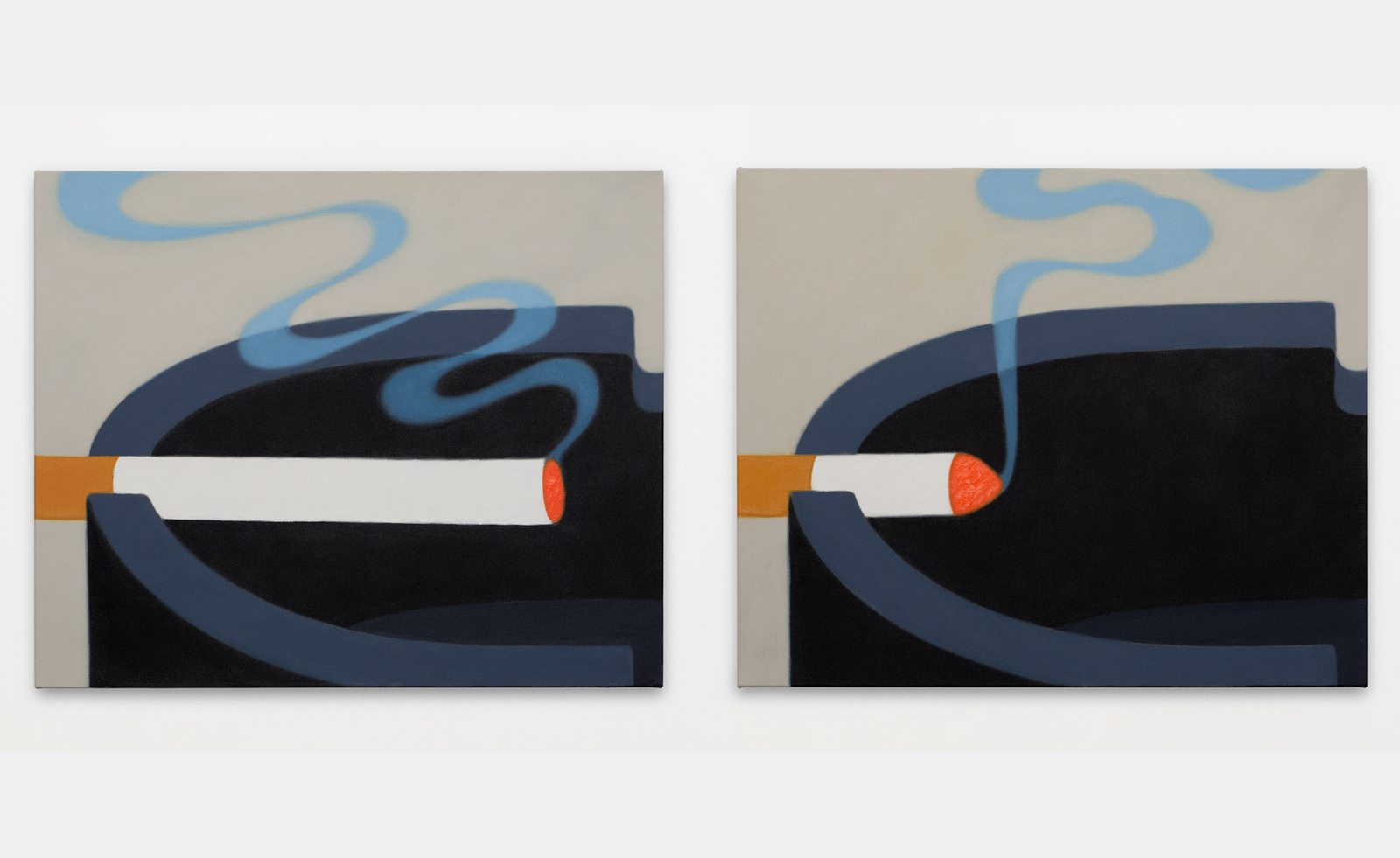
A pair of white stilettos ascend the stairs; a Kaj Franck glass imprisons a lanky spider; water overflows from the tub in a pink-tiled bathroom. Henni Alftan’s paintings inhabit a border between suspense and generosity from where her vignettes of everyday moments lure the viewer. The Paris-based Finnish artist intricately constructs eerily familiar instances with a painterly determination on form and colour – en route to rigorously constructed visions, however, she refuses to sacrifice a seductive ethereality. ‘I am not trying to paint an illusion – I am trying to do something that is recognisable, and as direct and simple as possible,’ she tells Wallpaper*.
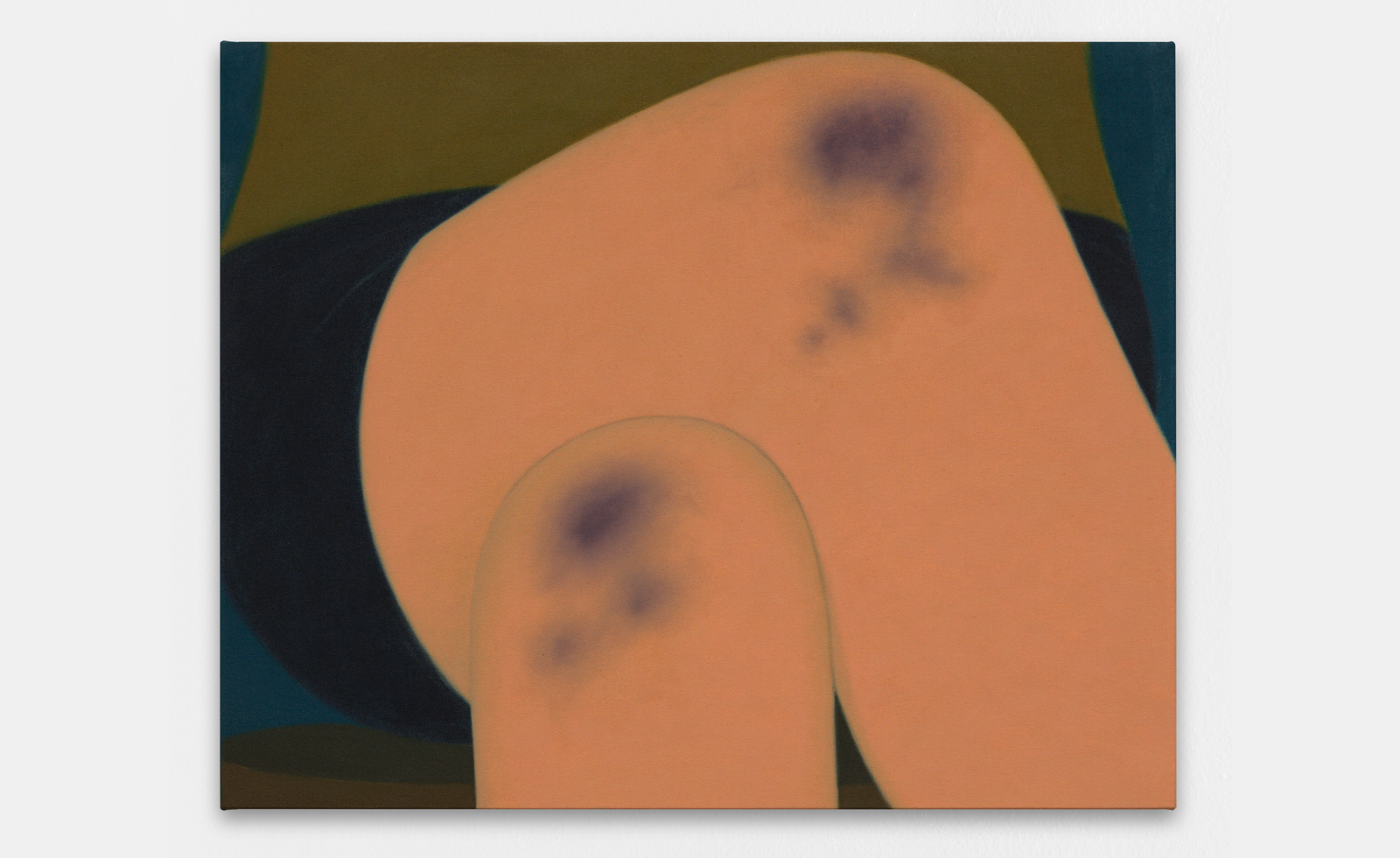
Henni Alftan, Knees, 2023
Alftan’s paintings are subject to two solo exhibitions on opposite ends of the globe. This week, New York gallery Karma opens ‘Stop Making Sense’, which features 17 new works, some of which are diptychs. Longlati Foundation in Shanghai has recently opened ‘House of Mirrors’, the artist’s largest solo outing in Asia, with the same number of mostly new works in addition to those from two or three years ago.
In Black Umbrella (In-between) (2023) at Karma, the gap between the diptych’s two paintings eliminates the figure’s face, rendering her likeness as a forever mystery. Her large black umbrella and red sweater claim our complete attention. Bath (2024) at Longlati Foundation leaves its bathing protagonist behind a two-toned blue shower curtain, hinting at an inhabitant’s presence with their visible knees plunged into the tub.
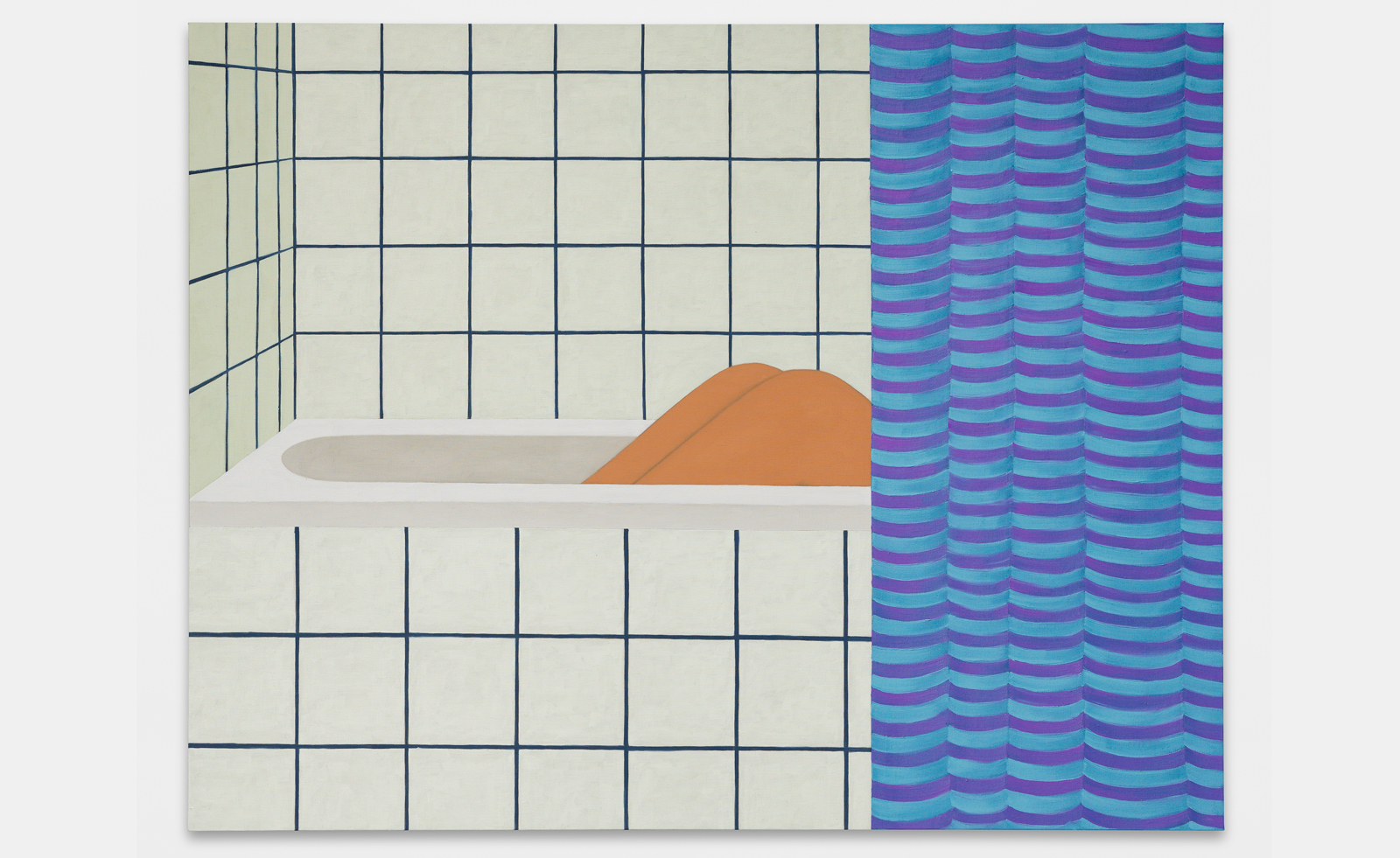
Henni Alftan, Bath, 2024
Through windows cropped with a surgical precision, Alftan suggests outlooks into the boundless potential of painting, both as a medium and an act of cataloguing the imagination. The 45-year old’s juxtapositions perhaps largely owe their contagious magnetism to the honest illustration of their protagonists, all while their motivations and the surrounding circumstances remain strictly opaque.
The Note (2023) shows a piece of paper, carefully held by a hand, being calmly conquered by fire. The lack of any piece of writing on the sheet runs against the title’s suggestion; however, the harmony between the slow burn and the patience of the hand fuels a plethora of narratives to muse. ‘There is no story, unless you write it, and there is no right or wrong in your imagination,’ the artist adds.
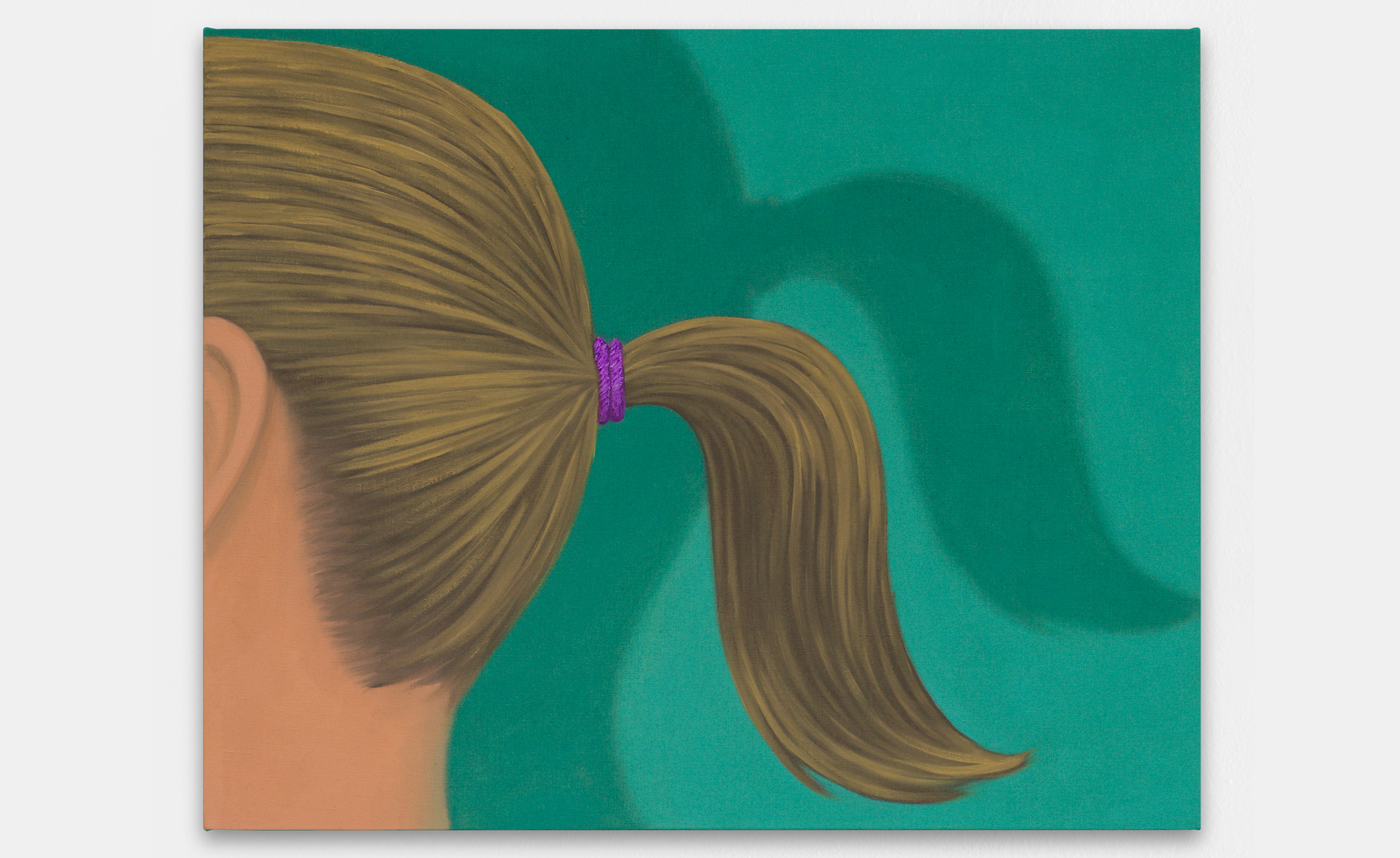
Henni Alftan, Ponytail, 2024
Alftan experiments with geometric abstraction to convey architectural characteristics in vaguely occupied or completely empty interiors. The artist bases her compositions on sketches, to which is takes care to remain loyal in their translations into paintings. TV (2024) shows a brightly lit television screen in a dimly lit room without any broadcasting imagery. The blue couch in the corner is potentially occupied by a sitter, given the device is turned on, but the probability of a dweller is complicated by a completely emptied shelf unit.
Light claims the leading role in a suite of paintings, Arched Window (2023), Electric Light (2024), Red Sky (2024), Stairway III (2024). In them, Alftan configures the illumination’s hospitable yet alarming impact on interiors with dramatic coloration accents. Fluorescent hues of yellow or red vigorously penetrate into rooms or radiate from them.
Receive our daily digest of inspiration, escapism and design stories from around the world direct to your inbox.
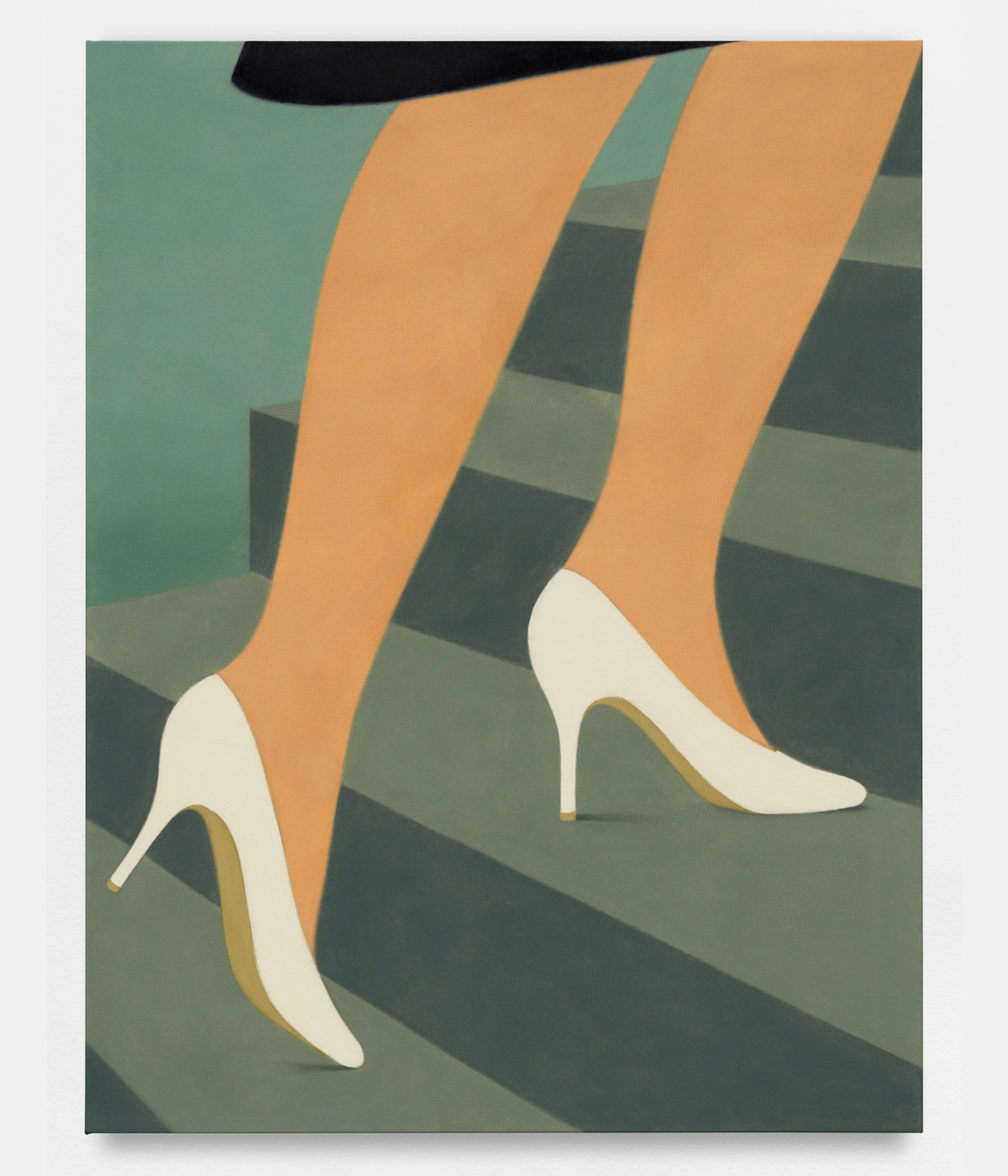
Henni Alftan, Heels, 2022
Both shows crystallise Alftan’s devotion to explore her practice’s mental, physical, and chemical powers to remind the viewer of the reality of looking at a painting. Stripping her figures and places of any subjective signifiers, she monumentalises their archetypal impacts. ‘They are descriptions of what you are seeing, not of what will happen,’ explains Alftan, who always returns to her notebook of ideas for inspiration. The works’ ephemeral nature – despite her fastidious illustration of textures such as fuzzy, soft, or wet – stems from an unfettered relationship with documenting reality. Referring to the bruises on the figure’s knees in Knees (2023), she says, ‘Yes, they look like bruises but they are also simply stains of paint over another layer of paint.’
‘Stop Making Sense’ is open at Karma, New York, until 11 January 2025. ‘House of Mirrors’ is open at Longlati Foundation, Shanghai, until 18 January 2025
longlatifoundation.org, karmakarma.org
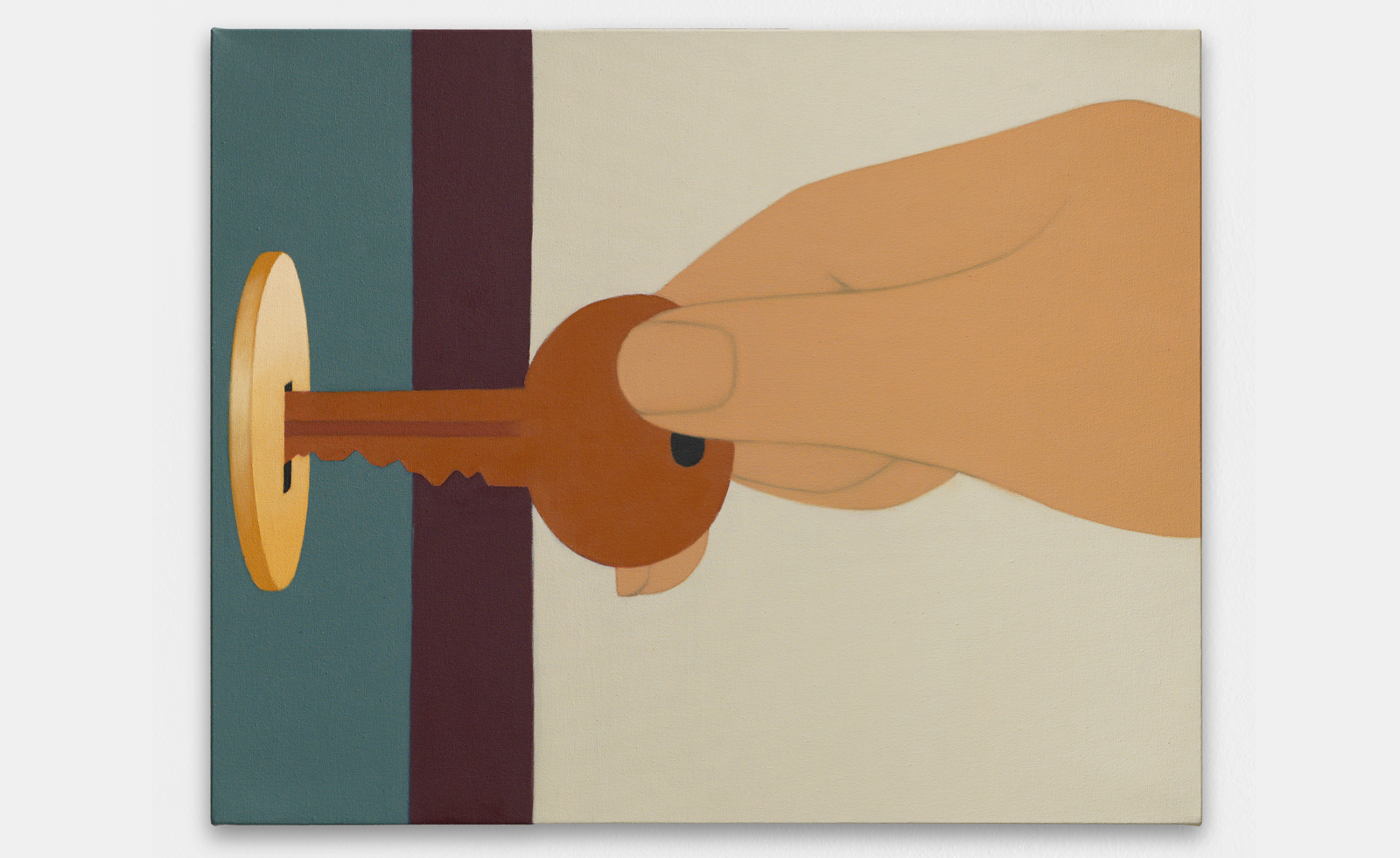
Henni Alftan, Lock & Key, 2023
Osman Can Yerebakan is a New York-based art and culture writer. Besides Wallpaper*, his writing has appeared in the Financial Times, GQ UK, The Guardian, Artforum, BOMB, Airmail and numerous other publications. He is in the curatorial committee of the upcoming edition of Future Fair. He was the art and style editor of Forbes 30 Under 30, 2024.
-
 A tale of two Audis: the A5 saloon goes up against the A6 Avant e-tron
A tale of two Audis: the A5 saloon goes up against the A6 Avant e-tronIs the sun setting on Audi’s ICE era, or does the company’s e-tron technology still need to improve?
-
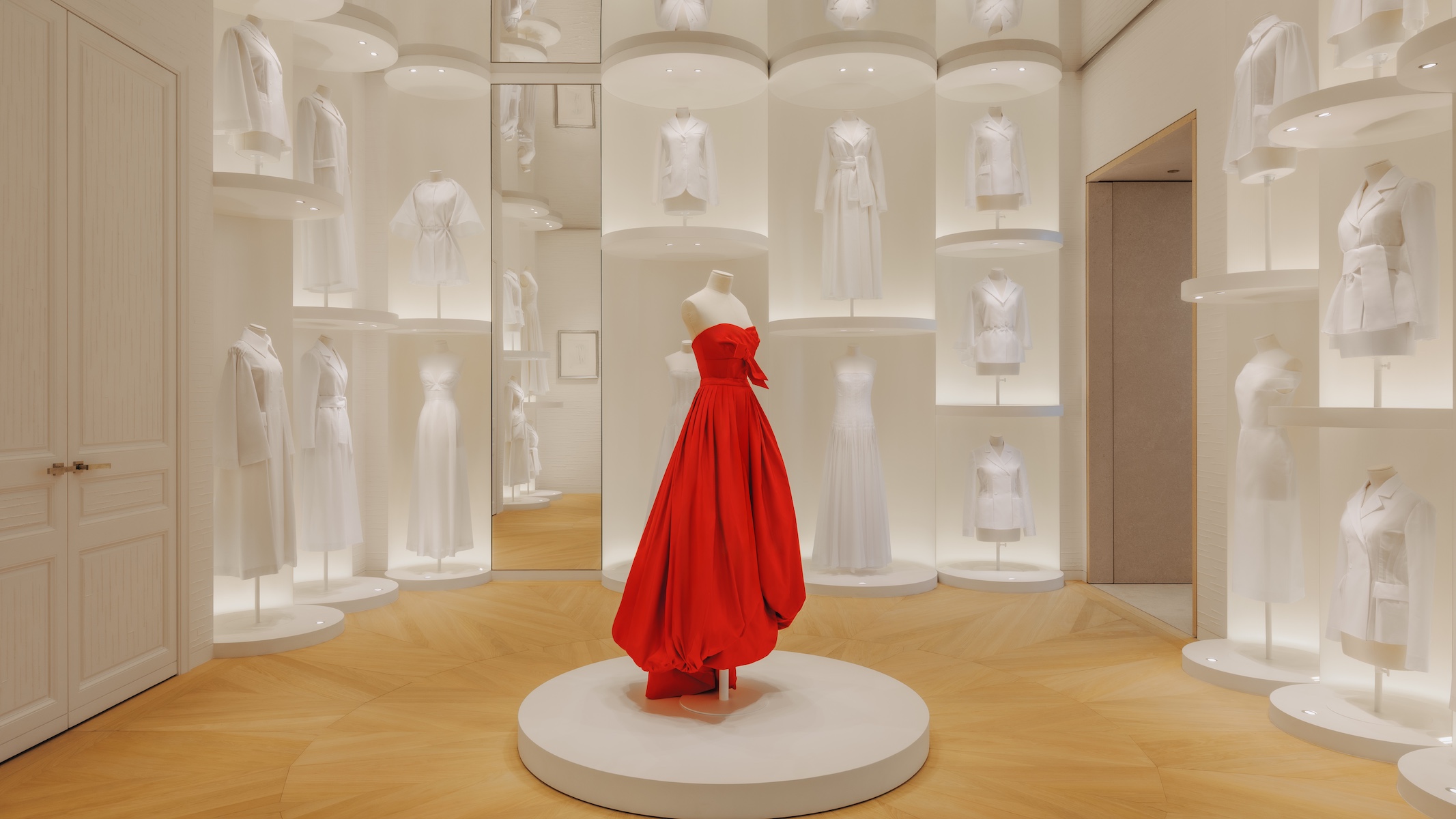 Inside Christian de Portzamparc’s showstopping House of Dior Beijing: ‘sculptural, structural, alive’
Inside Christian de Portzamparc’s showstopping House of Dior Beijing: ‘sculptural, structural, alive’Daven Wu travels to Beijing to discover Dior’s dramatic new store, a vast temple to fashion that translates haute couture into architectural form
-
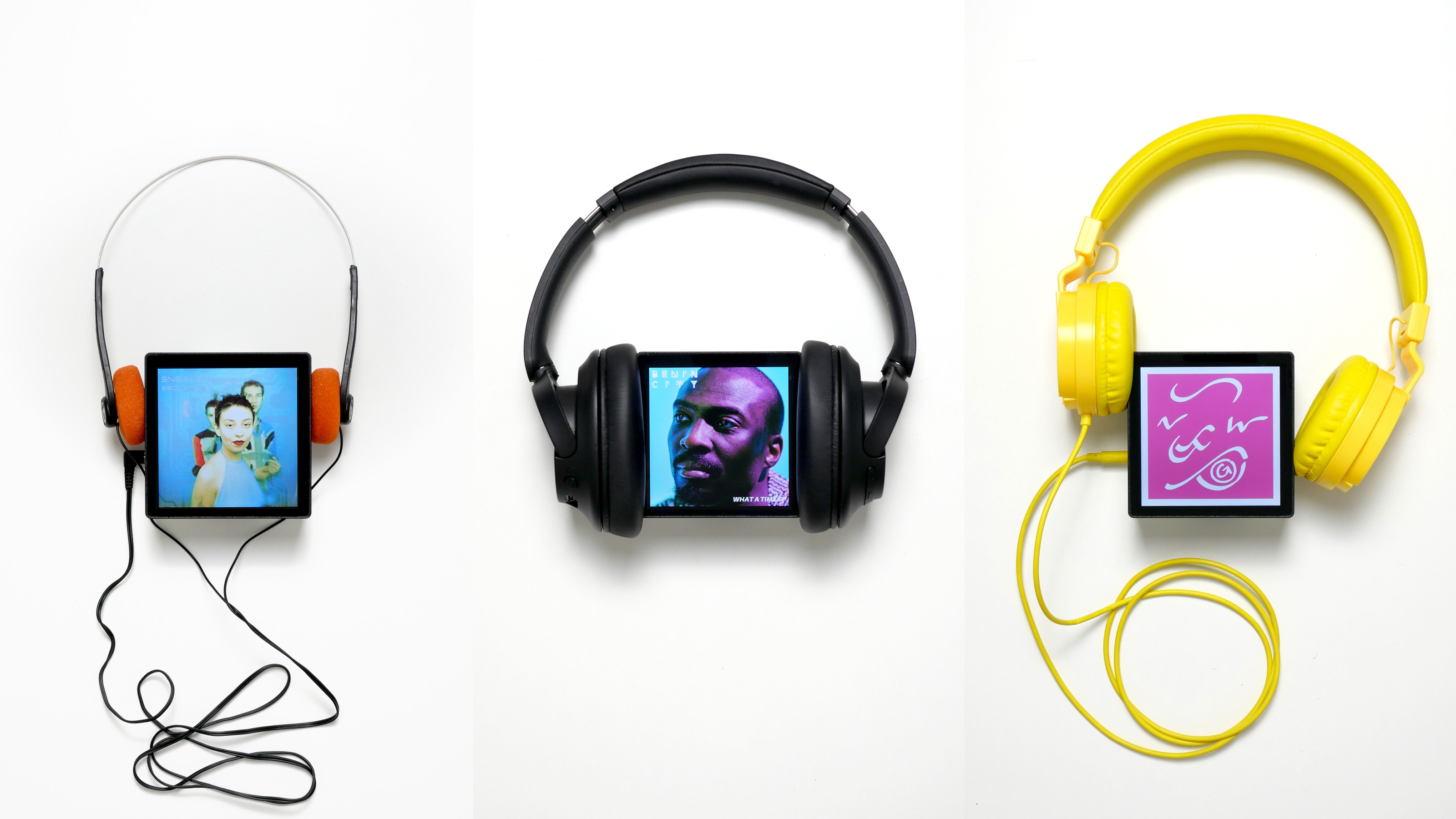 A music player for the mindful, Sleevenote shuns streaming in favour of focused listening
A music player for the mindful, Sleevenote shuns streaming in favour of focused listeningDevised by musician Tom Vek, Sleevenote is a new music player that places artist intent and the lost art of record collecting at the forefront of the experience
-
 Out of office: The Wallpaper* editors’ picks of the week
Out of office: The Wallpaper* editors’ picks of the weekIt’s been a week of escapism: daydreams of Ghana sparked by lively local projects, glimpses of Tokyo on nostalgic film rolls, and a charming foray into the heart of Christmas as the festive season kicks off in earnest
-
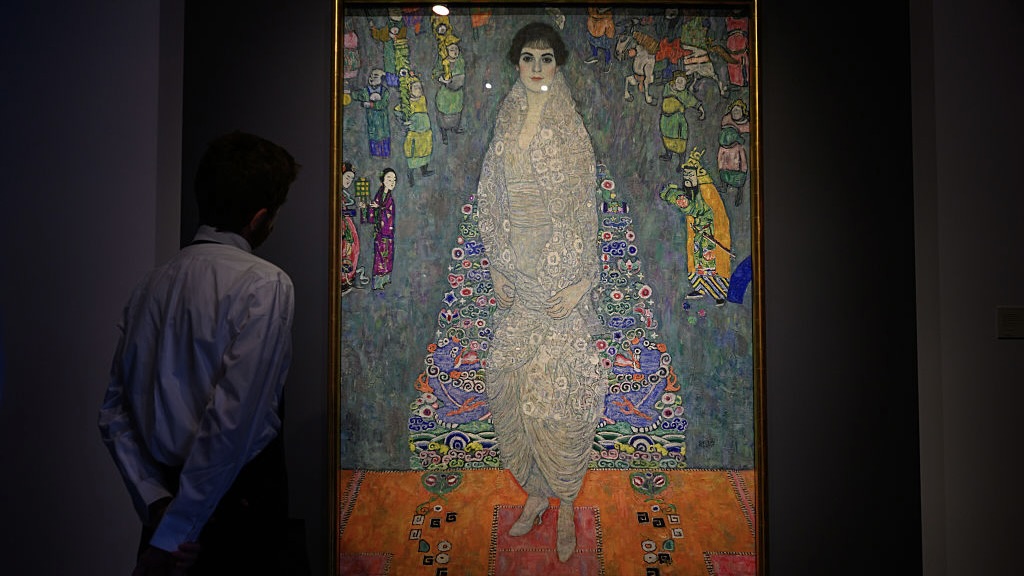 This Gustav Klimt painting just became the second most expensive artwork ever sold – it has an incredible backstory
This Gustav Klimt painting just became the second most expensive artwork ever sold – it has an incredible backstorySold by Sotheby’s for a staggering $236.4 million, ‘Portrait of Elisabeth Lederer’ survived Nazi looting and became the key to its subject’s survival
-
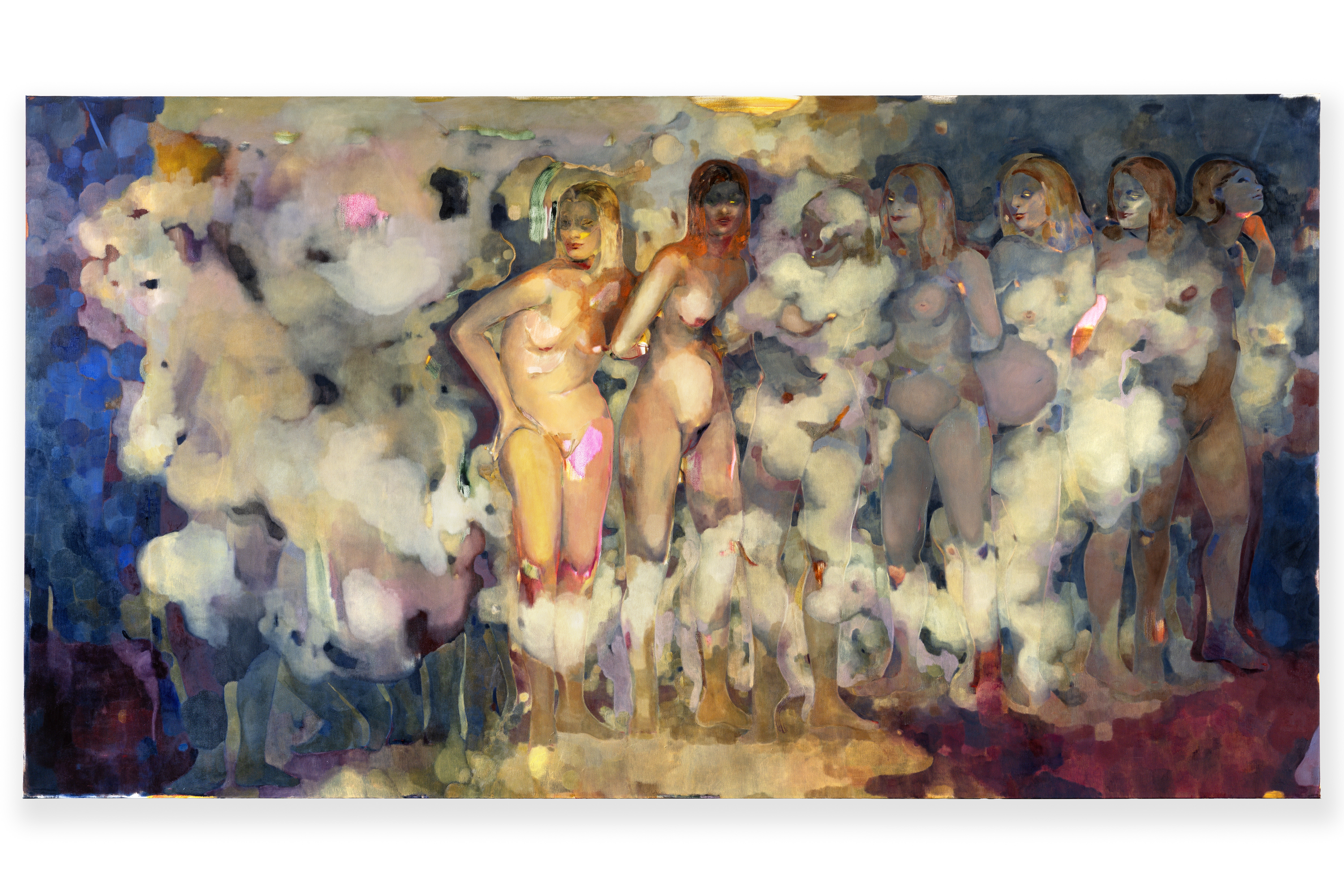 Meet Eva Helene Pade, the emerging artist redefining figurative painting
Meet Eva Helene Pade, the emerging artist redefining figurative paintingPade’s dreamlike figures in a crowd are currently on show at Thaddaeus Ropac London; she tells us about her need ‘to capture movements especially’
-
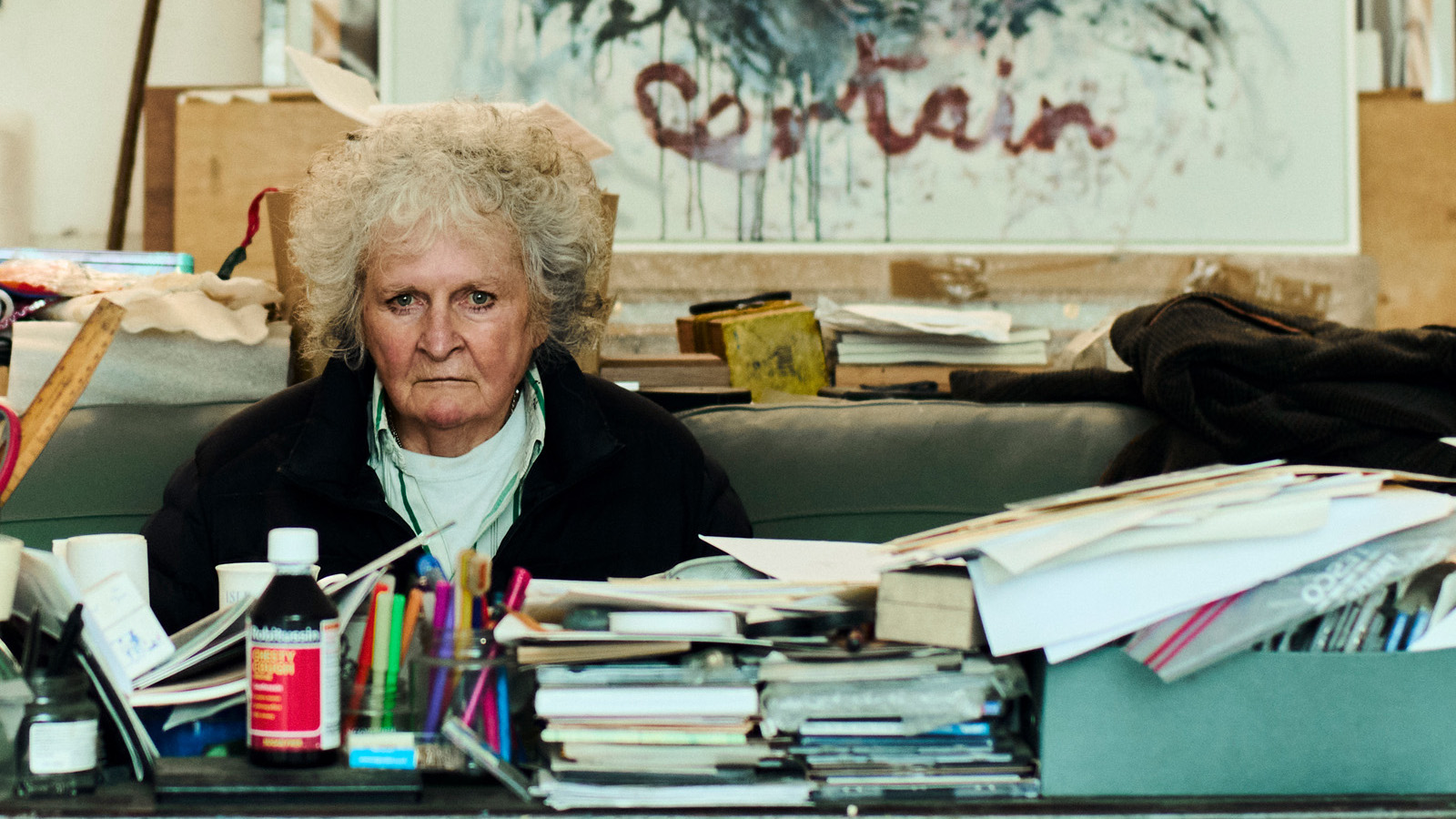 Maggi Hambling at 80: what next?
Maggi Hambling at 80: what next?To mark a significant year, artist Maggi Hambling is unveiling both a joint London exhibition with friend Sarah Lucas and a new Rizzoli monograph. We visit her in the studio
-
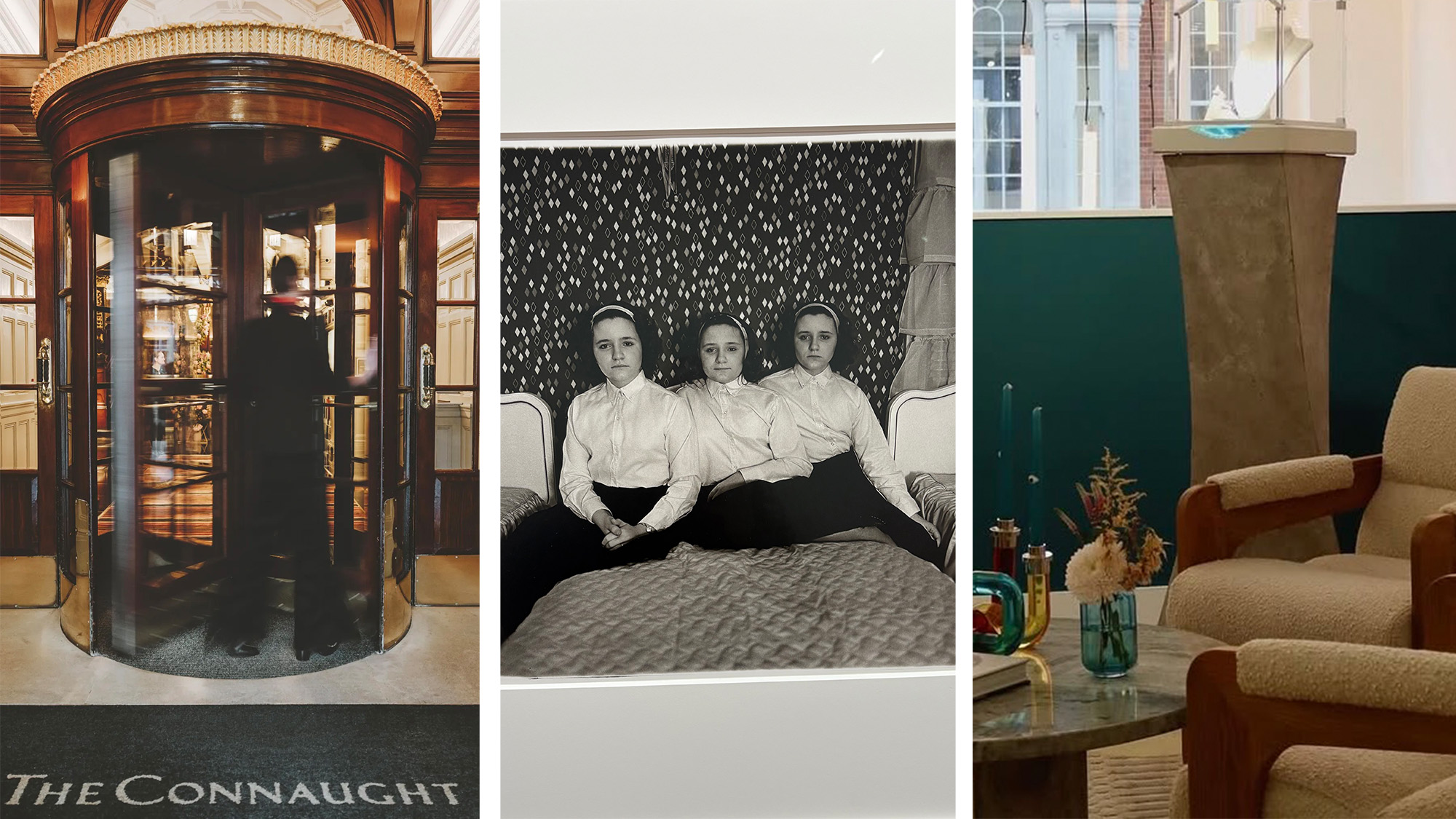 Out of office: The Wallpaper* editors’ picks of the week
Out of office: The Wallpaper* editors’ picks of the weekThis week, the Wallpaper* editors curated a diverse mix of experiences, from meeting diamond entrepreneurs and exploring perfume exhibitions to indulging in the the spectacle of a Middle Eastern Christmas
-
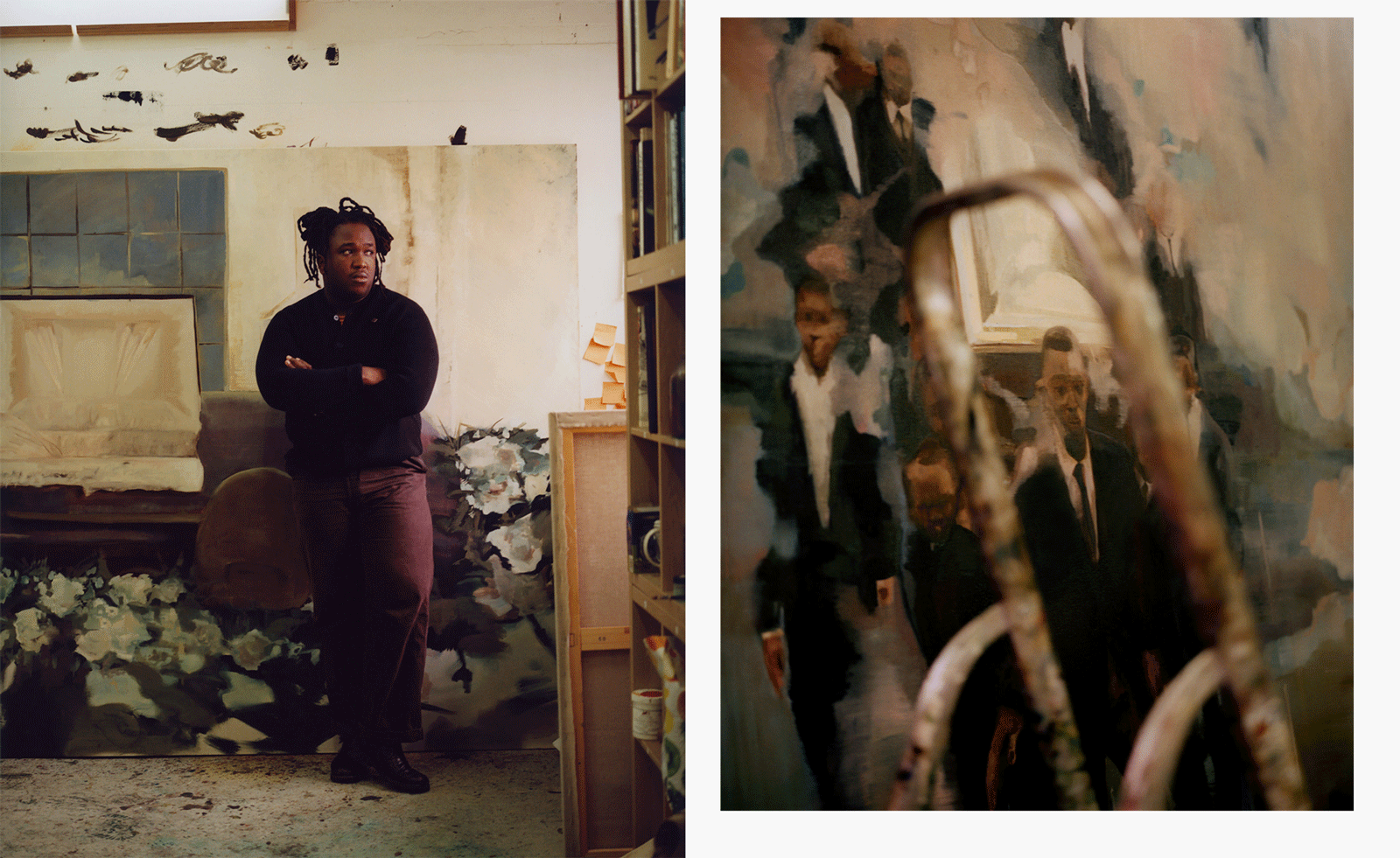 Artist Shaqúelle Whyte is a master of storytelling at Pippy Houldsworth Gallery
Artist Shaqúelle Whyte is a master of storytelling at Pippy Houldsworth GalleryIn his London exhibition ‘Winter Remembers April’, rising artist Whyte offers a glimpse into his interior world
-
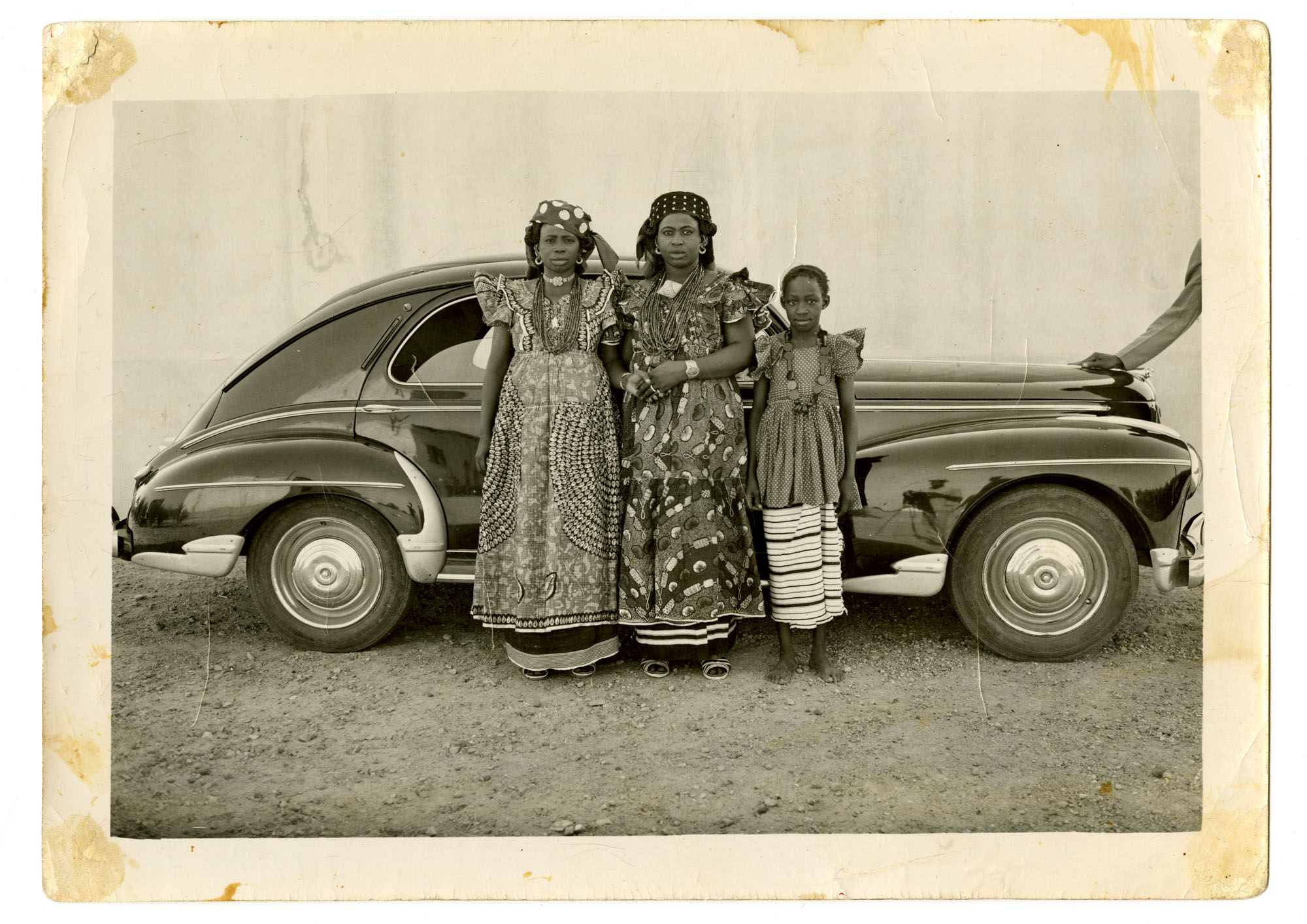 Inside the work of photographer Seydou Keïta, who captured portraits across West Africa
Inside the work of photographer Seydou Keïta, who captured portraits across West Africa‘Seydou Keïta: A Tactile Lens’, an exhibition at the Brooklyn Museum, New York, celebrates the 20th-century photographer
-
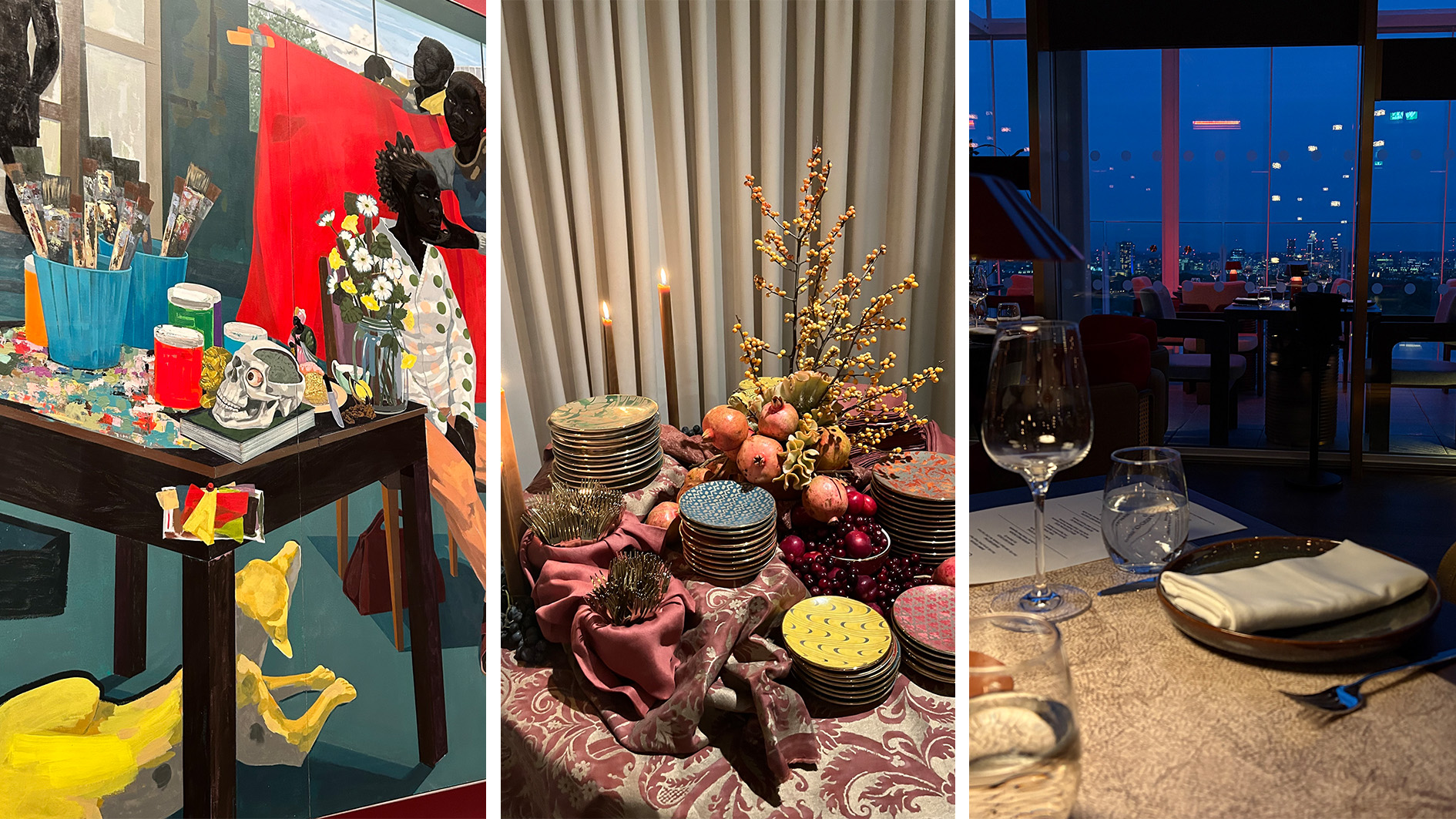 Out of office: The Wallpaper* editors’ picks of the week
Out of office: The Wallpaper* editors’ picks of the weekFrom sumo wrestling to Singaporean fare, medieval manuscripts to magnetic exhibitions, the Wallpaper* team have traversed the length and breadth of culture in the capital this week